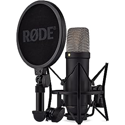Surprise! If Spotify Fails, 3 Companies Can Eat It Up

Is Spotify designed to fail?
Spotify is one of the most popular music streaming services in the world, with over 220 million subscribers and a catalog of over 100 million songs and podcasts. However, the company faces many challenges and uncertainties in its quest to dominate the audio market. In this article, we will discuss some of the questions and issues that Spotify has to deal with, such as its profitability, competition, growth, and relationship with record labels.
Spotify has never posted a net profit since its inception in 2006. In 2022, it reported a loss of €236 million ($295 million) on revenue of €11.72 billion ($14.6 billion). The main reason for its losses is the high cost of licensing music from record labels and other rights holders, which accounts for about 70% of its total expenses. Spotify pays royalties based on the number of streams and the market share of each artist or label, which means that as its user base grows, so does its royalty bill.
Spotify has tried to reduce its dependence on record labels by investing in podcasts and other original content, as well as offering tools and services for artists to create and distribute their own music. However, these initiatives have not yet generated significant revenue or profit for the company. Moreover, Spotify faces increasing competition from other music streaming services, such as Apple Music, Amazon Music, YouTube Music, and Tidal, as well as social media platforms like TikTok and Instagram, which also feature music and audio content.
Spotify’s business model is based on attracting and retaining users with a freemium service that offers basic features for free and premium features for a monthly fee. However, this model also poses some challenges for the company. For one thing, Spotify has to balance the quality and quantity of its free service to entice users to upgrade to premium without alienating them with too many ads or restrictions. For another thing, Spotify has to compete with other services that offer similar or better features for the same or lower price, such as Apple Music’s lossless audio and spatial audio support, or Amazon Music’s integration with Prime membership.
Spotify’s future success depends largely on its ability to innovate and differentiate itself from its rivals, as well as to negotiate favorable deals with record labels and other rights holders. The company has some advantages, such as its large and loyal user base, its strong brand recognition, its personalized recommendations and playlists, its global reach and ubiquity across devices, and its diverse content offerings. However, these advantages may not be enough to overcome its challenges and ensure its long-term viability.
Is their business model profitable and sustainable compared to audio companies like iHeartMedia or bigger companies like Amazon Audible, Apple Podcasts and Apple Music or Alphabet’s YouTube and YouTube Music?
Spotify’s business model is different from other audio companies in several ways. First of all, Spotify is primarily a music streaming service that also offers podcasts and other audio content, while iHeartMedia is mainly a radio broadcasting company that also offers streaming and podcasts, Amazon Audible is a subscription service that offers audiobooks and podcasts, Apple Podcasts is a platform that hosts and distributes podcasts for free, Apple Music is a music streaming service that also offers radio stations and podcasts, YouTube is a video-sharing platform that also features music videos and live streams, and YouTube Music is a music streaming service that also offers video content.
Secondly, Spotify’s revenue sources are mainly from subscriptions (91%) and advertising (9%), while iHeartMedia’s revenue sources are mainly from advertising (76%) and subscriptions (24%), Amazon Audible’s revenue source is mainly from subscriptions (100%), Apple Podcasts’ revenue source is mainly from advertising (100%), Apple Music’s revenue source is mainly from subscriptions (100%), YouTube’s revenue sources are mainly from advertising (55%) and subscriptions (45%), and YouTube Music’s revenue source is mainly from subscriptions (100%).
Thirdly, Spotify’s profitability is negative (-2%), while iHeartMedia’s profitability is positive (8%), Amazon Audible’s profitability is unknown (not disclosed), Apple Podcasts’ profitability is unknown (not disclosed), Apple Music’s profitability is unknown (not disclosed), YouTube’s profitability is positive (15%), and YouTube Music’s profitability is unknown (not disclosed).
Based on these comparisons, it can be said that Spotify’s business model is less profitable and sustainable than some of its competitors, especially those that have more diversified revenue sources, lower royalty costs, higher margins, or stronger synergies with other businesses. However, it can also be said that Spotify’s business model has more potential for growth and innovation than some of its competitors, especially those that have more limited content offerings, lower user engagement, or weaker brand loyalty.
Are recording companies like Sony, Warner and Universal have a strong foothold or control over Spotify?
Recording companies like Sony Music Entertainment (SME), Warner Music Group (WMG), Universal Music Group (UMG), and Merlin Network (a consortium of independent labels) have a strong foothold or control over Spotify in several ways. First of all, they own the majority of the music catalog that Spotify streams, which means that they have the power to set the terms and conditions of the licensing agreements that Spotify has to pay for. These agreements determine how much Spotify has to pay in royalties, how long the contracts last, and what rights and obligations each party has.
Secondly, they own a significant stake in Spotify’s equity, which means that they have the power to influence Spotify’s strategic decisions and corporate governance. According to Spotify’s latest annual report, SME owns 5.7%, WMG owns 4.8%, UMG owns 3.5%, and Merlin owns 1.6% of Spotify’s outstanding shares. These stakes give them voting rights and board representation, as well as the option to sell their shares in the market or to Spotify.
Thirdly, they have a competitive relationship with Spotify, which means that they have the power to challenge Spotify’s market position and user loyalty. They can do this by launching or partnering with rival streaming services, such as Apple Music, Amazon Music, YouTube Music, or Tidal, or by creating or acquiring exclusive content, such as artists, albums, playlists, or podcasts, that are not available on Spotify.
What happens to Spotify if it fails to grow? Will it bought by recording companies like Sony, Warner or Universal?
Spotify’s growth is crucial for its survival and success in the highly competitive and dynamic audio market. If Spotify fails to grow its user base, revenue, content, and features, it will face several risks and challenges, such as:
– Losing market share and relevance to its competitors, who may offer better value, quality, or variety to users.
– Losing bargaining power and leverage with record labels and other rights holders, who may demand higher royalties, shorter contracts, or more exclusivity.
– Losing investor confidence and support, who may question its profitability, sustainability, or valuation.
– Losing innovation and differentiation, who may fall behind the latest trends and technologies in the audio industry.
If Spotify fails to grow or overcome these risks and challenges, it may become a target for acquisition by other companies that are interested in its assets, such as its user base, brand recognition, content catalog, technology platform, or data insights. Some of these potential acquirers could be recording companies like Sony Music Entertainment (SME), Warner Music Group (WMG), Universal Music Group (UMG), or Merlin Network (a consortium of independent labels), who already own a stake in Spotify and have a strategic interest in controlling the music streaming market. However, such an acquisition would also face some obstacles and uncertainties, such as:
– Regulatory approval and antitrust scrutiny from authorities in different jurisdictions, who may consider the impact of the acquisition on competition, consumer choice, and market concentration.
– Shareholder approval and valuation agreement from both parties involved in the deal, who may have different expectations and preferences about the price and terms of the transaction.
– Integration challenges and cultural clashes between the acquirer and the acquired company, who may have different visions, missions, values, and cultures.
Compared to iHeartMedia, how big or profitable is Spotify as an audio company?
Spotify is bigger but less profitable than iHeartMedia as an audio company. According to their latest financial reports for 2022:
– Spotify had 220 million subscribers (paid users) and 551 million monthly active users (MAUs), while iHeartMedia had 10.9 million subscribers (paid users) and 250 million monthly active users (MAUs).
– Spotify had €11.72 billion ($14.6 billion) in revenue and €236 million ($295 million) in net loss (-2% net margin), while iHeartMedia had $3.03 billion in revenue and $243 million in net income (8% net margin).
– Spotify had a market capitalization of $58 billion as of September 30th 2023 (based on its closing share price of $321.01), while iHeartMedia had a market capitalization of $2.4 billion as of September 30th 2023 (based on its closing share price of $27.29).
Compared to TikTok, is Spotify good at music discovery?
Spotify and TikTok are both good at music discovery but in different ways. Spotify uses algorithms and human curation to recommend music based on users’ listening history, preferences, mood, activity, location, time of day, and other factors. It also offers personalized playlists such as Discover Weekly , Release Radar , Daily Mix , Your Top Songs , On Repeat , etc., as well as editorial playlists such as RapCaviar , Hot Country , Rock This , etc., that showcase different genres , artists , moods , themes , etc. Moreover , Spotify allows users to follow their favorite artists , friends , celebrities , influencers , etc., to see what they are listening to , as well as to create , share , collaborate , join , or follow playlists made by themselves or others .
Possible response:
Spotify and TikTok are both popular platforms for music lovers, but they have different approaches to music discovery. In this article, we will compare and contrast how Spotify and TikTok help users find new music, as well as how they affect the traditional radio industry and whether Spotify will adopt radio-like features in the future.
Spotify vs. TikTok: Music Discovery
Spotify uses algorithms and human curation to recommend music based on users’ listening history, preferences, mood, activity, location, time of day, and other factors. It also offers personalized playlists such as Discover Weekly, Release Radar, Daily Mix, Your Top Songs, On Repeat, etc., as well as editorial playlists such as RapCaviar, Hot Country, Rock This, etc., that showcase different genres, artists, moods, themes, etc. Moreover, Spotify allows users to follow their favorite artists, friends, celebrities, influencers, etc., to see what they are listening to, as well as to create, share, collaborate, join, or follow playlists made by themselves or others.
TikTok uses algorithms and social interactions to recommend music based on users’ viewing history, preferences, trends, hashtags, challenges, etc. It also features a Discover page that highlights popular songs and videos on the platform, as well as a For You page that shows personalized recommendations for each user. Moreover, TikTok allows users to create and share short videos with music clips from its library or their own device, as well as to interact with other users through likes, comments, duets, stitches, etc.
Both Spotify and TikTok are good at music discovery but in different ways. Spotify is more focused on delivering a personalized and diverse music experience for each user based on their tastes and needs. TikTok is more focused on delivering a viral and engaging music experience for each user based on their interests and behaviors. Spotify is better for finding new songs and artists that match your preferences and mood. TikTok is better for finding new songs and artists that are trending and popular.
Spotify vs. TikTok: Radio Industry
Spotify and TikTok are both competitors and partners of the traditional radio industry. On one hand, they are competing with radio for listeners’ attention and time. According to a report by Edison Research¹, the share of time spent listening to audio sources by Americans aged 13+ in 2020 was 25% for AM/FM radio (down from 33% in 2019), 24% for streaming audio (up from 20% in 2019), 16% for owned music (down from 17% in 2019), 6% for podcasts (up from 4% in 2019), and 5% for satellite radio (down from 6% in 2019). Spotify was the most used streaming audio service with a 25% share of the market², while TikTok was the most used social media platform with a 29% share of the market³.
On the other hand, they are also partnering with radio for content creation and distribution. Spotify has acquired several podcast companies such as Gimlet Media⁴, Anchor⁵, Parcast⁶, The Ringer⁷, Megaphone⁸, etc., to expand its podcast offerings and reach. It also has exclusive deals with popular radio personalities such as Howard Stern⁹, Joe Rogan[^10^], Michelle Obama, etc., to stream their shows on its platform. TikTok has collaborated with several radio stations such as iHeartRadio, SiriusXM, BBC Radio 1, etc., to create live shows and playlists featuring TikTok stars and songs.
Spotify vs. TikTok: Radio Features
Spotify already has some radio-like features on its platform such as Stations (a standalone app that lets you listen to personalized stations based on genres or artists), Daily Drive (a playlist that mixes music and news into one), Car Thing (a smart device that lets you control Spotify in your car), etc. However, it does not have live radio stations like Apple Music does with its Beats 1 (now renamed Apple Music 1) or other genre-based stations such as Apple Music Hits or Apple Music Country.
It is possible that Spotify will embrace more radio-like features in the future to compete with Apple Music or other streaming services that offer live radio options such as Pandora or TuneIn Radio. However, it is also possible that Spotify will focus more on its core strengths of personalized playlists and podcasts rather than live radio stations. Ultimately, it will depend on what its users want and what its competitors do.
Spotify and TikTok are both powerful platforms for music discovery but they have different strengths and weaknesses. Spotify is better for finding new songs and artists that match your preferences and mood while TikTok is better for finding new songs and artists that are trending and popular. Spotify and TikTok are both competitors and partners of the traditional radio industry, as they vie for listeners’ attention and time while also collaborating for content creation and distribution. Spotify already has some radio-like features on its platform but it does not have live radio stations like Apple Music does. It is unclear whether Spotify will embrace more radio-like features in the future or stick to its core strengths of personalized playlists and podcasts.
Source:
(1) Spotify Business Model. https://businessmodelanalyst.com/spotify-business-model/.
(2) Spotify’s Business Model: What Can We Learn? | SB. https://www.startingbusiness.com/blog/business-strategy-spotify.
(3) How Spotify Makes Money: Premium Services and Ad … – Investopedia. https://www.investopedia.com/articles/investing/120314/spotify-makes-internet-music-make-money.asp.
(4) Top 10 SPOTIFY Competitors in 2023. https://whatcompetitors.com/spotify/.
(5) The 8 Best Spotify Alternatives in 2023 – Lifewire. https://www.lifewire.com/best-alternatives-to-spotify-5217870.
(6) The Top 10 Best Spotify Alternatives (Updated for 2022). https://www.digitalmusicnews.com/2021/08/23/spotify-alternatives-best/.
(7) Spotify Competitors Analysis: Who Stacks Up Against this Music …. https://www.thestockdork.com/spotify-competitors-and-alternatives/.
(8) Slowly but surely, the major labels’ dominance of Spotify is declining …. https://www.musicbusinessworldwide.com/slowly-but-surely-the-major-labels-dominance-of-spotify-is-declining/.
(9) How Much Do Spotify And Record Labels Still Need Each Other? – Billboard. https://www.billboard.com/pro/spotify-experts-public-listing-strategy-streaming-labels/.
(10) Spotify Is Finally Proving Its Value to Record Labels. https://www.fool.com/investing/2020/07/23/spotify-is-finally-proving-its-value-to-record-lab.aspx.
(11) Spotify music service now proving valuable to record labels – USA TODAY. https://www.usatoday.com/story/money/2020/07/24/spotify-is-finally-proving-its-value-to-record-labels/41802177/.
(12) Spotify Paid Out $7 Billion to the Music Industry in 2021 – Variety. https://variety.com/2022/digital/news/spotify-7-billion-music-industry-labels-publishers-2021-1235212986/.
(13) Spotify Revenue and Usage Statistics (2023) – Business of Apps. https://www.businessofapps.com/data/spotify-statistics/.
(14) Spotify Shares Our Vision To Become the World’s Creator Platform. https://newsroom.spotify.com/2022-06-08/spotify-shares-our-vision-to-become-the-worlds-creator-platform/.
(15) How can Spotify grow in 2021? | Jan, 2021 | Medium | Medium. https://jitenchablani.medium.com/how-can-spotify-keep-growing-in-2021-and-beyond-f0759d8e5bd4.
(16) Growth Through Acquisition – The Deal Board | Podcast on Spotify. https://open.spotify.com/episode/0iblg1zLq5guU68LuL5dEX.
(17) Spotify Acquired Two Major Podcast Technology Companies … – Forbes. https://www.forbes.com/sites/johanmoreno/2022/02/18/spotify-acquired-two-major-podcast-technology-companies-youtube-should-be-concerned/.
(18) iHeartRadio VS. Spotify – An In-Depth Comparison – Tunefab. https://www.tunefab.com/spotify/iheartradio-vs-spotify.html.
(19) Spotify or iHeartRadio, Which Will You Choose in 2022? – ViWizard. https://www.viwizard.com/spotify-music-tips/spotify-vs-iheartradio.html.
(20) Spotify Vs Pandora Vs iHeartRadio: The Best Music Streaming Services. https://topmusic.co/spotify-vs-rdio-vs-iheartradio-the-best-music-streaming-services-guest-post/.
(21) iHeartRadio vs Spotify – Everything You Should Know – AudKit. https://www.audkit.com/spotify-music/spotify-vs-iheartradio.html.
(22) iHeartRadio vs Spotify: 2023 Detailed Comparison – AudFree. https://www.audfree.com/spotify-music/iheartradio-vs-spotify-comparison.html.
(23) 4 Best Music Streaming Services (2023): Spotify, Apple Music … – WIRED. https://www.wired.com/gallery/best-music-streaming-apps/.
(24) Best Music Streaming Service of 2023 – CNET. https://www.cnet.com/tech/services-and-software/best-music-streaming-service/.
(25) TikTok Clones: How Spotify, Instagram, Twitter And More Are Copying …. https://www.forbes.com/sites/conormurray/2023/03/13/tiktok-clones-how-spotify-instagram-twitter-and-more-are-copying-features-like-the-for-you-page/.
(26) Spotify gets TikTok-style design on your Samsung smartphone – SamMobile. https://www.sammobile.com/news/spotify-to-roll-out-tiktok-style-home-feed-for-galaxy-smartphones/.
(27) Spotify vs TuneIn Radio detailed comparison as of 2023 – Slant. https://www.slant.co/versus/733/4970/~spotify_vs_tunein-radio.
(28) Spotify vs Radio – Medium. https://medium.com/the-modern-professional/spotify-vs-radio-47653fe6567b.
(29) Apple Music vs. Spotify: Which is the best music app?. https://www.tomsguide.com/face-off/apple-music-vs-spotify-which-is-the-best-music-app.
(30) Apple Music vs. Spotify: Which is Better? – How-To Geek. https://www.howtogeek.com/509022/apple-music-vs-spotify/.
(31) Apple Music vs Spotify comparison – Tech Advisor. https://www.techadvisor.com/article/715798/apple-music-vs-spotify-comparison.html









